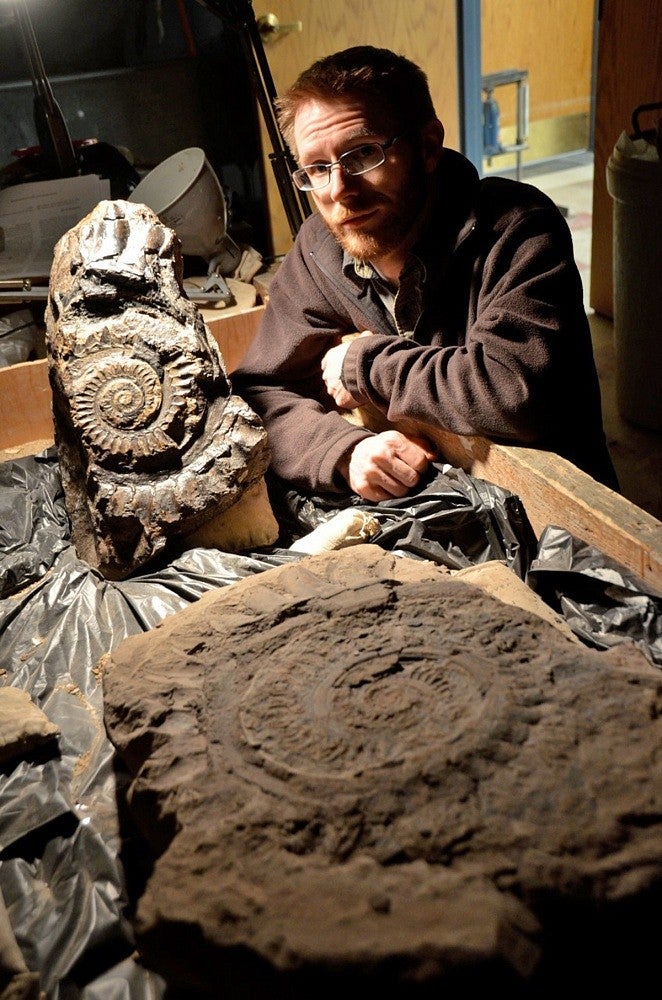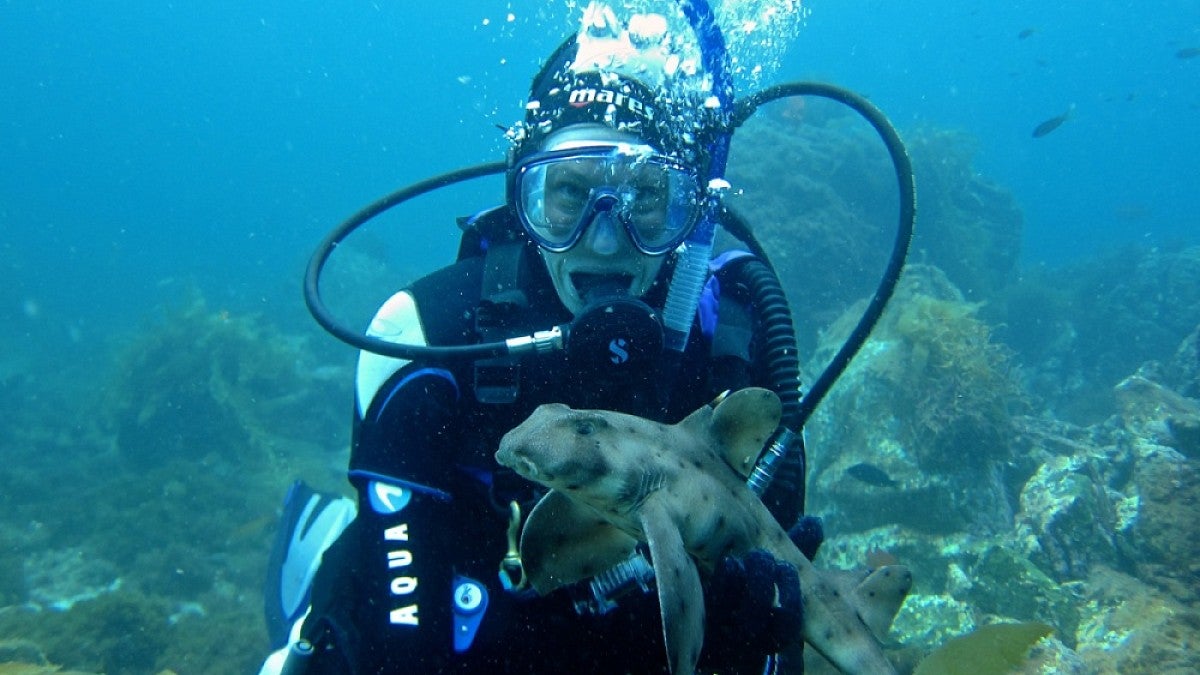As part of the international celebration of the birth month of Charles Darwin, the UO Museum of Natural and Cultural History will feature two public talks that will dive into the evolution and ecology of sharks.

Together, the talks will span 250 million years of shark evolution.
On Friday, Feb. 19, Tapanila will kick off the series with “Buzz Saw Sharks — Catching the Biggest Fish in the Permian Sea.” One part scientific narrative and one part fisherman’s tale, Tapanila's talk will focus on the unfolding mystery of Helicoprion, an ancient, whorl-toothed fish whose fossilized remains stumped scientists for more than a century.
The talk dovetails with the museum’s Buzz Saw Sharks of Long Ago exhibit, which draws from Tapanila's research on the ancient shark and features the quirky artwork of Alaska’s Ray Troll. The exhibit will be on view through April 24.
The Darwin series continues on Friday, Feb. 26, with “A Glimpse into the World of Sharks — Exploring Myths and Realities.” With a focus on modern species, Jordan-Smith will review key scientific findings, examine popular beliefs about sharks and make a case for greater conservation efforts.
“Sharks are often referred to as the villains of the ocean, but they and their close relatives fulfill key roles in healthy oceans,” Jordan-Smith said.
Both of the talks will take place at 5:30 p.m. in Room 175, Knight Law Center. The series is open to the public and admission is free.
“Sharks have been around for more than 400 million years, surviving five mass extinctions that wiped out most other species,” said museum program developer Lauren Willis, who organized the series. “It’s fitting that we would celebrate Darwin’s birthday by talking about such an evolutionary marvel.”
—By Kristin Strommer, Museum of Natural and Cultural History


